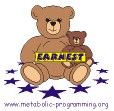|
Animal, Cell and Molecular Studies (Theme 3)
Theme Leader - Prof Michael
Symonds
Theme 3 covered animal studies
which were designed to determine the primary metabolic pathways by which altered
maternal nutrition either during pregnancy or lactation, results in offspring
being at increased risk of later disease. These studies
underpinned the findings from the clinical (Theme 1) and observational (Theme 2)
themes. At the same time they generated new questions
that are applicable to each of these themes. By using a range of large and
small animal models that are appropriate to each disease, Theme 3 not only
defined specific mechanisms by which later disease is programmed but
determined
the precise nutritional conditions that contribute to these processes. The main
objectives are outlined below:
- To determine when are the critical windows during
early development when maternal nutrition programmes one or
more of the following chronic degenerative diseases; obesity, cardiovascular
disease, metabolic syndrome, diabetes, renal disease, immune function and
cancer.
- To examine the effects of both macro and
micronutrients on multiple organ systems and
pathways that are implicated within each disease process.
- To elucidate whether these outcomes are
genotype dependent (e.g. by using transgenic models) or/and are reversible
and can be overcome by later nutritional or pharmacological interventions.
Early Nutrition Programming
Project at DOHaD
The project was well represented
at the Third International Congress on the Developmental Origins of Adult
Health and Disease (DOHaD) held in Toronto, Canada on 16-20th November 2005 with
up to 20 delegates. Its members gave a number of plenary and symposium
communications together with a large number of original posters presentations.
In addition, three members of the project (L Poston, S Ozanne and M Symonds)
were elected to the Society's Governing Council amongst whom it was felt that
stronger links between DOHaD and the EARNEST project should be forged.
Of particular interest at the
meeting was the increased focus on:
- Programming of later obesity
and whether appetite regulation or fat growth is the primary mechanism
involved.
- The impact of diabetes in
pregnancy and increased fetal nutrition.
- A greater emphasis on
lactation as a major window of developmental plasticity with very different
outcomes to those seen during maternal and/or fetal manipulations at
conception and pregnancy.
Other points of interest
included:
- The divergence in animal and
epidemiological findings with regard to the early programming of cancer.
- The apparent increased
emphasis of epigenetic mechanisms of DOHaD.
- The need for a much greater
understanding of kidney development and how this can impact on hypertension.
Future developments in the area
are likely to include:
- The role of individual or
groups of nutrients with respect to fetal and/or postnatal programming.
- The control of postnatal
growth and how this can lead to very different outcomes depending on the
duration and composition of formula feeds.
- The need to translate
current basic research into clinical practice and government policy and
funding calls.
back to top
| 

